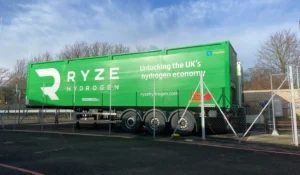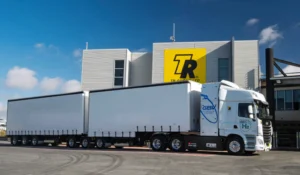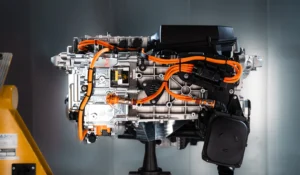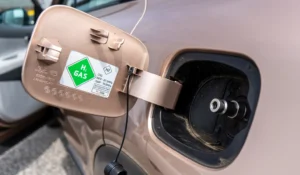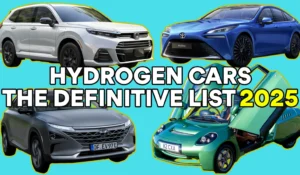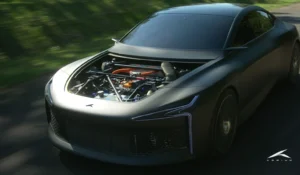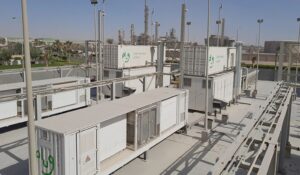Hydrogen buses on trial at Sizewell C nuclear plant – 150 more could follow
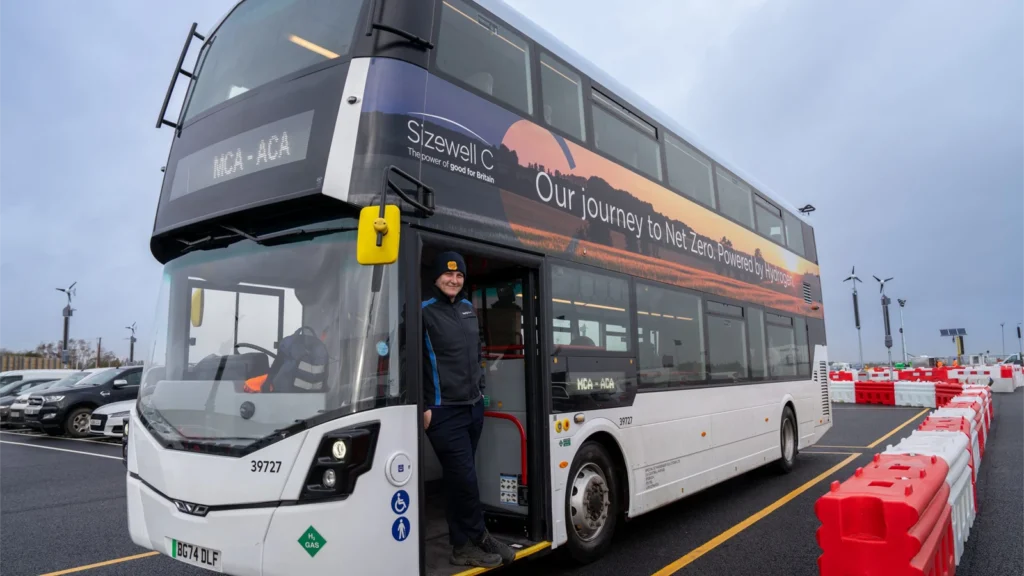
Four hydrogen buses have begun ferrying workers to the Sizewell C nuclear site in Suffolk – three double-deckers and one single-decker – as part of a new trial that could lead to the UK’s largest hydrogen bus fleet.
The first buses have already been quietly running since January, with the official launch taking place in Ipswich last month.
According to Sizewell C, if the six-month pilot goes to plan, up to 150 hydrogen buses could be ordered to support the full construction phase of the 3.2GW nuclear project.
They would run alongside a future fleet of electric buses, forming what the company describes as a “mixed zero-emissions fleet”.
Built in Ballymena, headed for Leiston
The buses are made by Wrightbus in Northern Ireland – the firm owned by JCB’s Jo Bamford – who built the world’s first hydrogen double-decker bus, launched in 2020.
All its hydrogen buses are built in the UK, which the company says supports thousands of skilled green jobs, both at the Ballymena factory and across the domestic supply chain.
“We always said hydrogen was for big and heavy machines,” said Wrightbus CEO Jean-Marc Gales. “And these buses are a perfect example of this in practice.”
Gales added that while battery-electric buses are fine in cities, they can fall short on longer, more rural routes – a useful detail in a county not exactly short on hedgerows and distant hamlets.
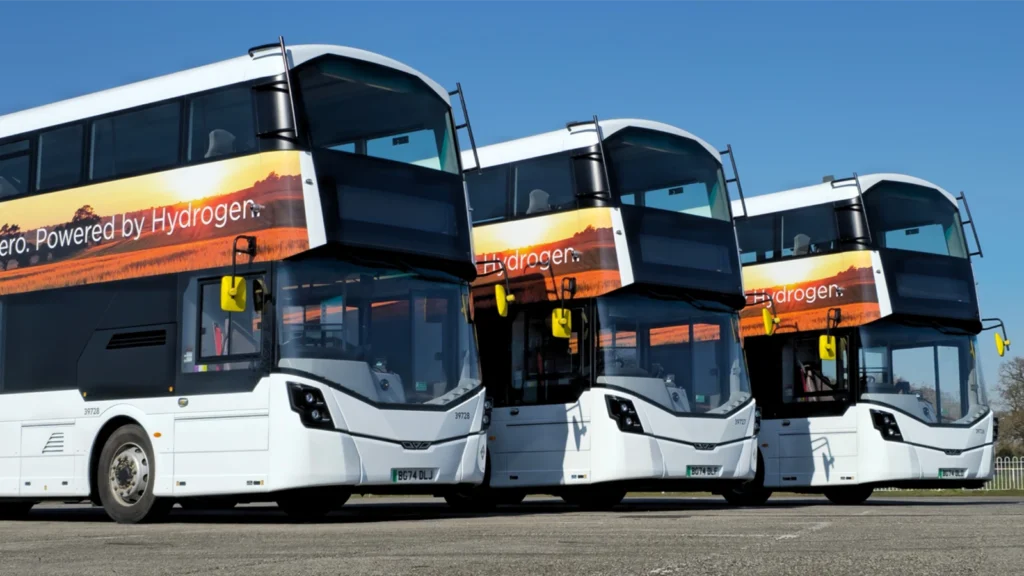
Operated by SPS, running since January
The buses are being operated by Specialist Passenger Solutions (SPS), part of First Bus Group.
Simon Cursio, Managing Director at SPS said: “This is an exciting time for all involved in the Sizewell C project. Working in partnership with Sizewell C, Wrightbus and Ryze Power, we will deliver cleaner, innovative solutions to workplace transport.
“Together, we will learn a lot through this pilot to inform us in providing the best and most effective emission-free passenger transport service for the duration of this great project.”
The pilot is scheduled to run for six months.
A hydrogen filling station in Suffolk – at last
The hydrogen for the trial is being supplied by Ryze Power (also owned by a Mr Bamford), which is also trialling its mobile refuelling system.
This setup is the first hydrogen refuelling infrastructure of its kind in Suffolk – modest in scale, but not insignificant.
Ryze says the buses can be refuelled in eight minutes, about the same as filling up with diesel – just minus the particulates.
The company received over £3 million in government funding for the project, with Ryze’s Sales Director Alex Webster saying: “Hydrogen is a safe, zero-emission fuel that has a huge part to play in the decarbonisation of hard-to-abate sectors.
“Our mobile refuelling systems are the perfect way to introduce a reliable hydrogen supply.”
It’s a start – and one that might help unlock the usual ‘chicken and egg’ problem of infrastructure versus demand.
Sizewell C’s emissions plan
Beyond nuclear megawatts and apprenticeships, Sizewell C wants its construction to be as low-carbon as the electricity it will eventually generate.
The company has already committed to delivering 60% of construction materials by rail and sea, rather than by road.
The aim being not just to cut emissions, but also to reduce traffic pressure on local roads – a point of no small interest to those living near the site. The hydrogen bus fleet is another part of that effort.
“We have an ambition to build in a way which is sustainable and reduces carbon emissions,” said Julia Pyke and Nigel Cann, Joint Managing Directors of Sizewell C.
“Hydrogen has the potential to make a significant difference – reducing carbon emissions, improving air quality and limiting the impact of our workforce transport on the local area.”
Their hope is that the trial creates a compelling use case for hydrogen in the region – not just on buses, but potentially across logistics and construction.
Sizewell C also says the trial could help develop new clean jobs and training opportunities, with local education providers already looking to support future demand for green skills.
The company is also developing a direct air capture prototype at the Port of Lowestoft which, if scaled up, could remove 1.5 million tonnes of CO₂ per year – roughly the same as the UK’s entire rail industry’s emissions.
If achieved, it would mark a rare crossover between nuclear, hydrogen, and carbon removal technologies – something still more concept than commonplace in the UK energy landscape.
Local jobs, local impact
The bus trial is also being presented as a springboard for regional investment. Local MP for Ipswich Jack Abbott, who also serves as the government’s East of England Mission Champion, said the project could help decarbonise transport in Suffolk and “act as a catalyst” for wider sector growth.
He pointed to a local jobs agreement signed last year, which commits Sizewell C to hiring 500 Ipswich residents, investing in education and charities, and holding two job fairs annually. The first of those has already taken place.
So while it’s still early days, the vehicles are running, the hydrogen is flowing, and the workers are getting to site without adding to the county’s diesel tally.

